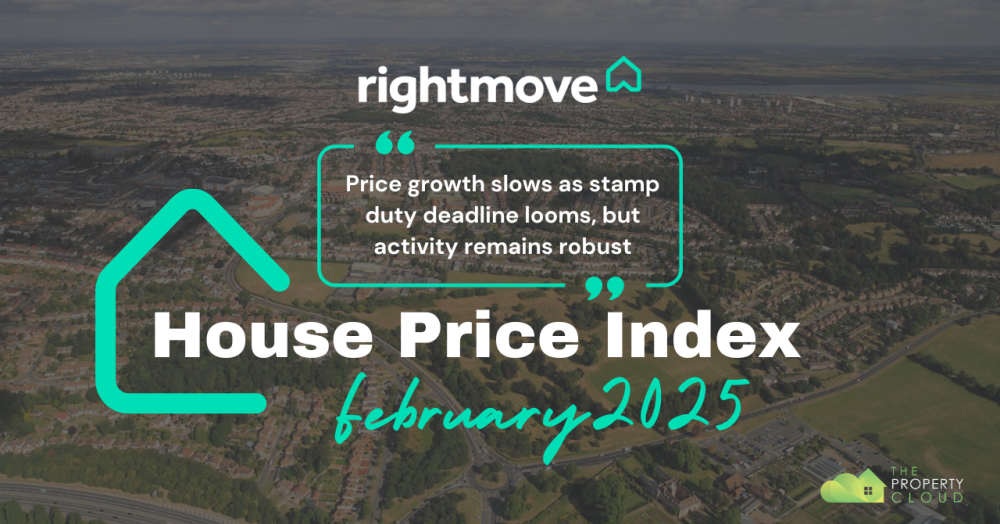
🏡 February 2025 - What's happening to house prices?
The average asking price of resale homes coming to market rises by 0.5% (+£1,805) this month to £367,994, a muted price rise for this time of year as new sellers lower their price expectations. This is due to the looming stamp duty deadline and high seller competition, with the number of available homes for sale at a 10-year high.
Here are 5 key points from the report that you ought to know ⬇️
🟢 The number of available homes for sale is at a 10-year high, moderating the New Year price surge.
🟢 The stamp duty deadline will impact some regions and movers more than others, with a conveyancing log-jam expected:
- There are more than 550,000 homes sold yet awaiting legal completion, 25% more than at this time last year.
- First-time buyer purchases between £500,001 and £625,000 are most affected, with an extra £11,250 at risk for this group if the deadline is missed, with a log-jam expected as some scramble to complete before March 31st.
- Moving activity remains robust after the first full month of 2025 compared to a year ago, with the number of new sellers coming to market now 13% ahead, buyer demand 8% ahead, and sales agreed numbers up by 15%.
- Slower price rises are supporting underlying activity levels, with no major drop-off in activity expected from April.
🟢 January was a record month for applications for a Mortgage in Principle on Rightmove, 49% more than January 2024.
🟢 Global and economic news continues to affect market sentiment and outlook, with attention turning to upcoming inflation and earnings figures. While mortgage rates remain high, they are now on a downward trend.
Colleen Babcock, property expert at Rightmove said:
“New sellers are showing some pricing restraint after a fast start to the year, being mindful of both the high level of seller competition, and in England also of the looming stamp duty deadline and extra costs for some buyers. Agents report that some of the steam is coming out of new sellers’ price expectations to fit the changing market conditions, which is a sensible reaction to attract buyer interest, and it will also help to support activity levels. The upcoming stamp duty deadline in England remains a key talking point, and while some movers may not be affected at all, others will be more severely impacted. We’ve previously suggested reforms such as regional variations in stamp duty charges to try and address some of the inequities in the current system. With the predicted conveyancing log-jam likely to cause some buyers to miss the deadline and end up paying more tax through no fault of their own, it would seem justifiable for the government to announce a short extension before the end of March.”
